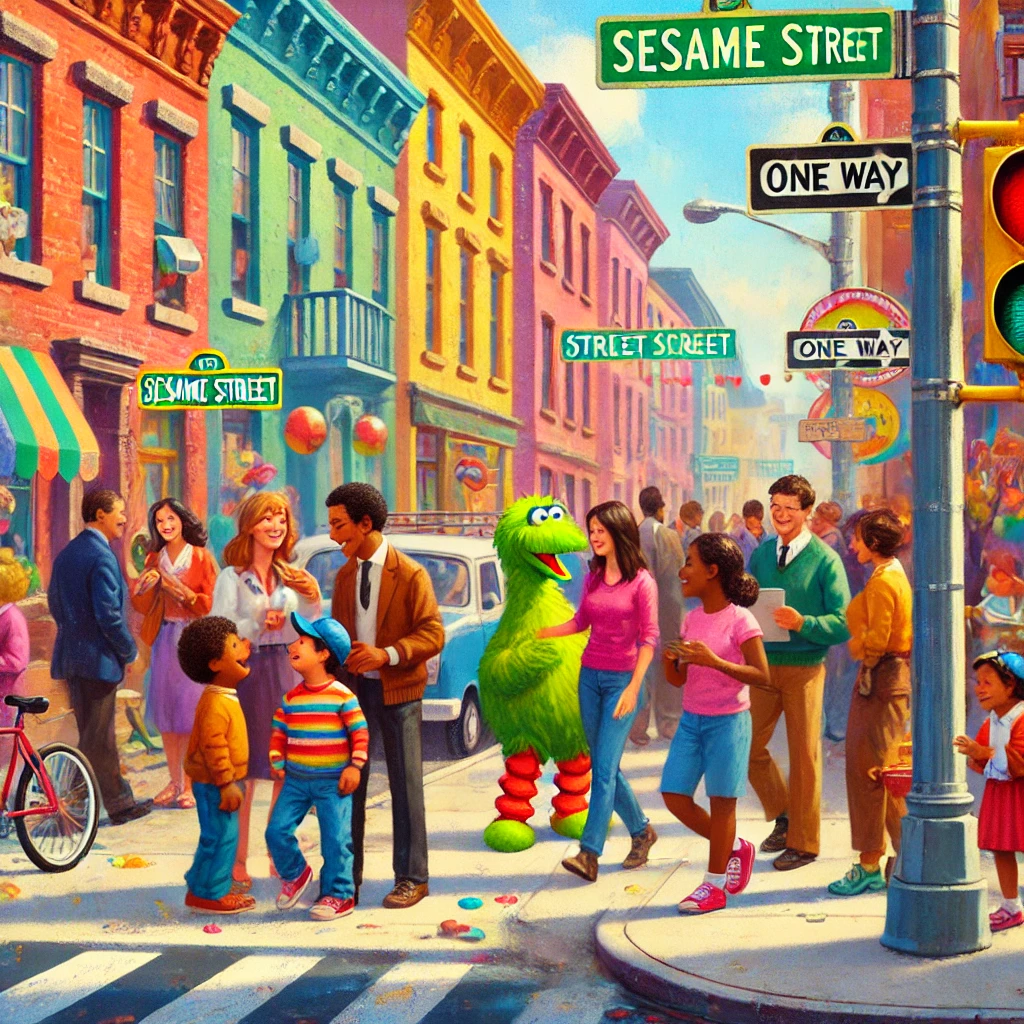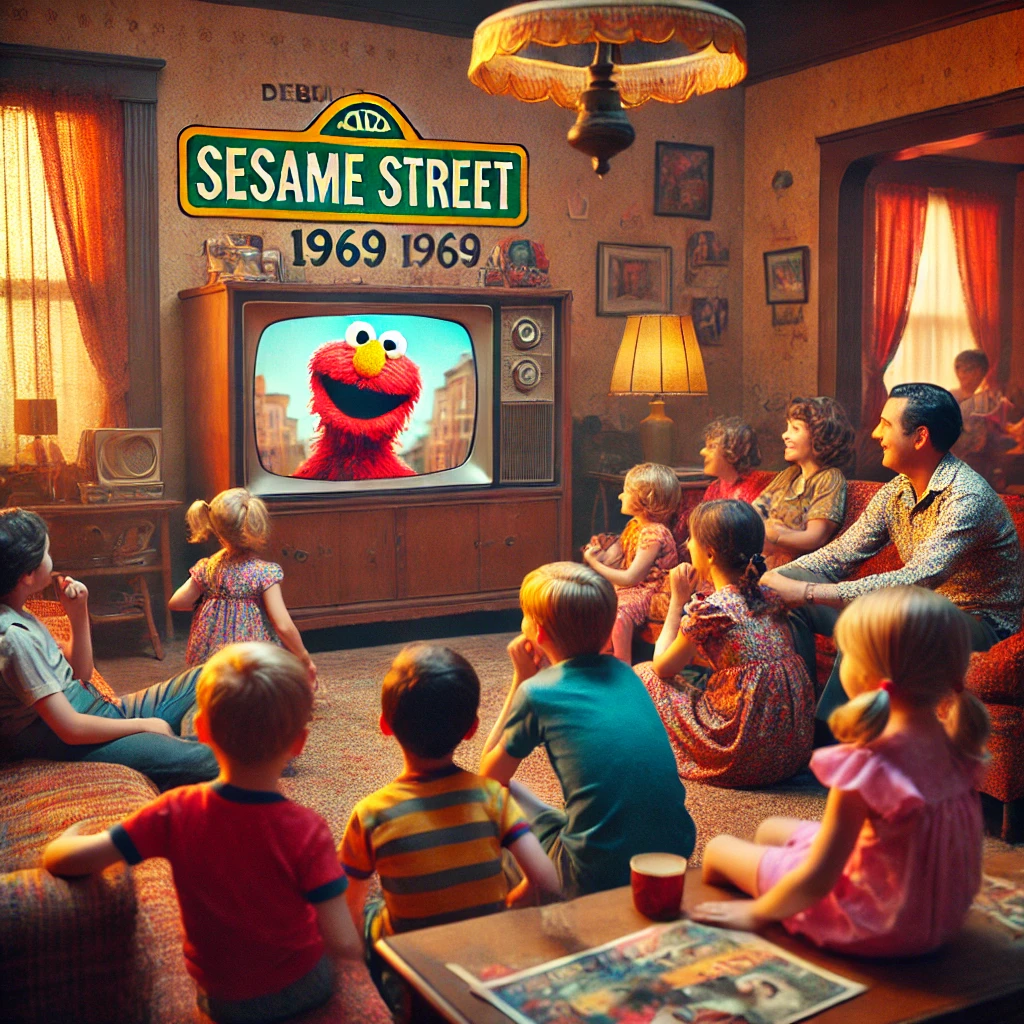On November 10, 1969, “Sesame Street” made its debut on American television, revolutionizing the landscape of children’s programming. This groundbreaking show combined education with entertainment, using puppetry, animation, and live-action segments to engage young viewers. “Sesame Street” quickly became a beloved institution, recognized for its innovative approach to early childhood education and its commitment to addressing important social issues.

The Concept Behind “Sesame Street”
Created by Joan Ganz Cooney and a team of writers and educators, “Sesame Street” aimed to prepare preschoolers for school while promoting social and emotional development. The show’s format was designed to captivate young audiences, utilizing catchy songs, colorful characters, and relatable storylines. The blend of humor and educational content was revolutionary, and it set a new standard for children’s television.
From the very beginning, “Sesame Street” was committed to diversity and inclusivity. The show featured characters from various backgrounds, fostering understanding and acceptance among children. Its lessons extended beyond the classroom, addressing issues such as empathy, friendship, and community involvement, making it a powerful tool for social change.

Lasting Impact on Education and Entertainment
Since its premiere, “Sesame Street” has had a profound impact on children’s television and education. The show has been praised for its effectiveness in teaching foundational skills such as literacy and numeracy, while also promoting social values. Research has shown that children who watch “Sesame Street” perform better in school, demonstrating the show’s success in achieving its educational goals.
“Sesame Street” has also inspired countless spin-offs, adaptations, and international versions, solidifying its place as a global phenomenon. The show’s beloved characters, such as Big Bird, Elmo, and Cookie Monster, have become cultural icons, reaching audiences far beyond their original target demographic. The legacy of “Sesame Street” continues to resonate today, as it remains a vital resource for parents and educators seeking to nurture young minds.

The debut of “Sesame Street” on November 10, 1969, marked a watershed moment in children’s television, combining education and entertainment in a way that had never been done before. Its innovative approach to teaching essential life skills and fostering inclusivity has left a lasting legacy, making it a cherished part of childhood for generations. As we reflect on this milestone, we celebrate the impact of “Sesame Street” on education and its enduring role in shaping young lives.
